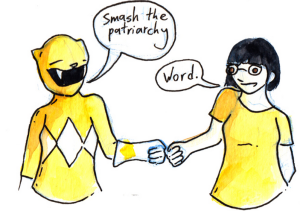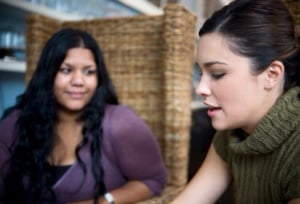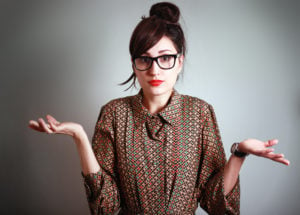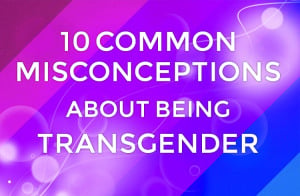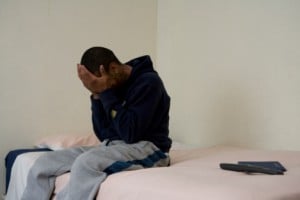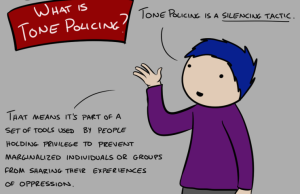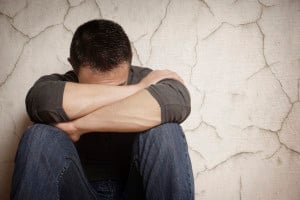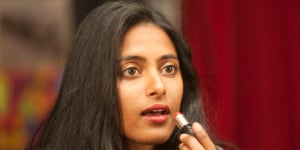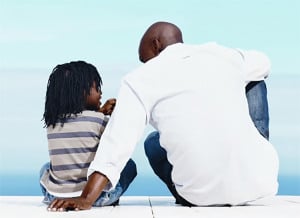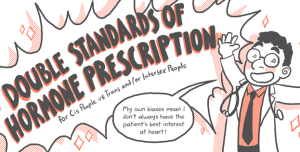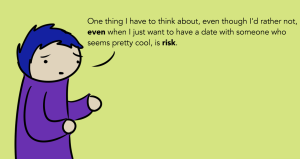I’m Jamia Wilson, Executive Director of Women, Action, and the Media. #RaceAnd Gender. #RaceAnd Disability. #RaceAnd Class.
Intersectionality is something that I think about every day because I am living it, and I also think about what it means to show up in the world in my specific body, with my specific experience and background. I am African-American. I’m also straight. I am able bodied except for the fact that I was born with a visual impairment, so I walk around with a disability that sometimes people can’t see.
I was raised in an upper middle class background, so I have class privilege. All of those things play into power, privilege, and marginalization that I experience depending on those different aspects of my identity.
(Title Card: What does this have to do with racial justice?)
Even though race is a social construct and we know that genetically there is no such thing as race, it’s this very powerful, powerful illusion that’s been perpetuated and used to kill people. It’s been used to justify war. It’s been used to enslave people. It’s been used to force people into indentured servitude. And to disregard that history is disrespectful to all the people who suffered and fought for me to be able to live closer to freedom today.
(Title Card: Have there been times when people neglected to acknowledge all of your identities?)
When I am in feminist spaces and sometimes I might be told that it’d divisive for me to bring up race, that we need to focus on the issue at hand, which is gender. Or it might come up in a space where we’re doing racial justice work, and I might be told by another person of color, “Well, this isn’t an issue about your gender, this is an issue about race, and it doesn’t matter what the gender issue is, race has to take priority and precedence in this issue.” That’s impossible for me to make a prioritization of various parts of my identity that are equally integral to who I am, and that are inextricably connected.
We want to make sure that we’re not “single story-ing” other people, and that we aren’t contributing to that, that people need to show up as their whole selves, and that’s better for us as a community and as a culture and a society.
(Title Card: What about people who think talking about our differences divides us?)
What I really want to ask people who ask me that question is: what part of your own internalized oppression, or your own addiction to the drug that is privilege, makes you fear full liberation for all people? There’s a problem with even seeing this as divisive. There’s a problem when we’re not actually understanding that the liberation of all people makes us all free.
When trans women of color are free, that’s bringing me close to freedom. When Syrian refugees are free, that brings me close to freedom. It’s really important for us to think about that, not to think about how we protect our own privilege with a structure that doesn’t even work for us, but how do we create more openness and liberation for all human beings. For all humanity.





